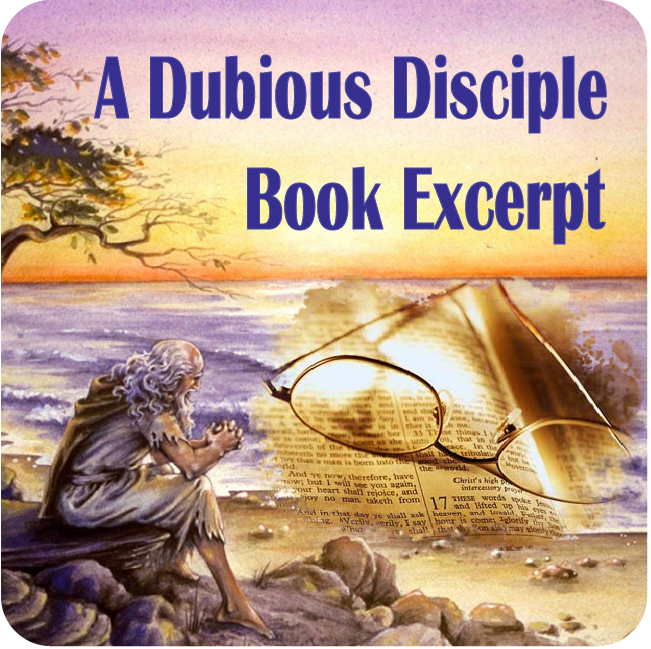Book Excerpt: John’s Gospel: The Way It Happened
In the beginning was the Logos, John tells us. Logos, the Greek word translated as Word in the NASB, is the mind of God controlling this world, the force changing it from chaos to order, and for hundreds of years before Christ, it portrayed a philosophical line of thought known well by all learned men in the Hellenistic world, much as scholars today might discuss evolution or Einstein’s Theory of Relativity.
Plato once said to his followers, “It may be that someday there will come forth from God a Logos, who will reveal all mysteries and make everything plain.” The idea of the Logos, or Word, began back in the sixth century BCE among the Greeks, in the very city in which John’s Gospel was supposedly written (Ephesus). Its roots go deep into Stoicism, where it is perceived as a sort of cosmic reason, giving order and structure to the universe. In Stoic thought, Logos was reason, the impersonal, rational principle governing the universe. This principle was thought to pervade the entire universe and was indeed the only god recognized by the Stoics.
Philo of Alexandria provides our best Jewish example of this line of thought. “Logos” is the term Philo used to reconcile Stoicism and Judaism. He speaks of the knowledge of God as eternal life, and identifies the Logos as the firstborn Son of God—a phrase which, until New Testament times, had always been understood metaphorically. The Logos for Philo was never personal either.
In an astounding claim, John now alleges this Logos has arrived … in the flesh! Literally, as written in Greek, John’s hymn says God “tabernacled” with mortals, choosing a temporary dwelling place among his people. It evokes an image of the portable tabernacle of the Hebrew nation as they travelled through the wilderness.
Until these verses, John’s intended Hellenistic audience would have never imagined that he was speaking about a historical character, or describing the events of a historical life. But now John drops a bombshell: he is writing about the glory of the Jewish Messiah, a flesh-and-blood person! A profound claim is made here, and the wording is not coincidental. Ezekiel 37:27 reads, “My dwelling place will be with them: I will be their God, and they will be my people.” Devout Jews looked forward to a future age, an era of righteous reign, when God himself would come back to earth, set up his messianic kingdom, and “tabernacle” among his people. The Jewish Feast of Tabernacles, which is an integral part of John’s theology in this Gospel, anticipates this great day. And now, it has finally arrived! John is telling us in song about the very day God came down to earth.
–John’s Gospel: The Way It Happened, 2013, by Lee Harmon












 354 Circles
354 Circles
 603 Goodreads Friends & Fans
603 Goodreads Friends & Fans

 Hello! I'm an author, historical Jesus scholar, book reviewer, and liberal Christian, which means I appreciate and attempt to exercise the humanitarian teachings of Jesus without getting hung up on any particular supernatural or religious beliefs.
The Bible is a magnificent book that has inspired and spiritually fed generations for thousands of years, and each new century seems to bring a deeper understanding of life’s purpose. This is true of not only Christianity; through the years, our age-old religions are slowly transforming from superstitious rituals into humanitarian philosophies. In short, we are growing up, and I am thrilled to be riding the wave.
I avidly read all thought-provoking religion titles. New authors: I'd love to read and review your book!
Hello! I'm an author, historical Jesus scholar, book reviewer, and liberal Christian, which means I appreciate and attempt to exercise the humanitarian teachings of Jesus without getting hung up on any particular supernatural or religious beliefs.
The Bible is a magnificent book that has inspired and spiritually fed generations for thousands of years, and each new century seems to bring a deeper understanding of life’s purpose. This is true of not only Christianity; through the years, our age-old religions are slowly transforming from superstitious rituals into humanitarian philosophies. In short, we are growing up, and I am thrilled to be riding the wave.
I avidly read all thought-provoking religion titles. New authors: I'd love to read and review your book!
 Hi! While Lee writes the articles and reviews the books, I edit, organize, and maintain the blog. The views expressed here are Lee's but I'm his biggest supporter! :-)
Hi! While Lee writes the articles and reviews the books, I edit, organize, and maintain the blog. The views expressed here are Lee's but I'm his biggest supporter! :-)
Connect With Me!